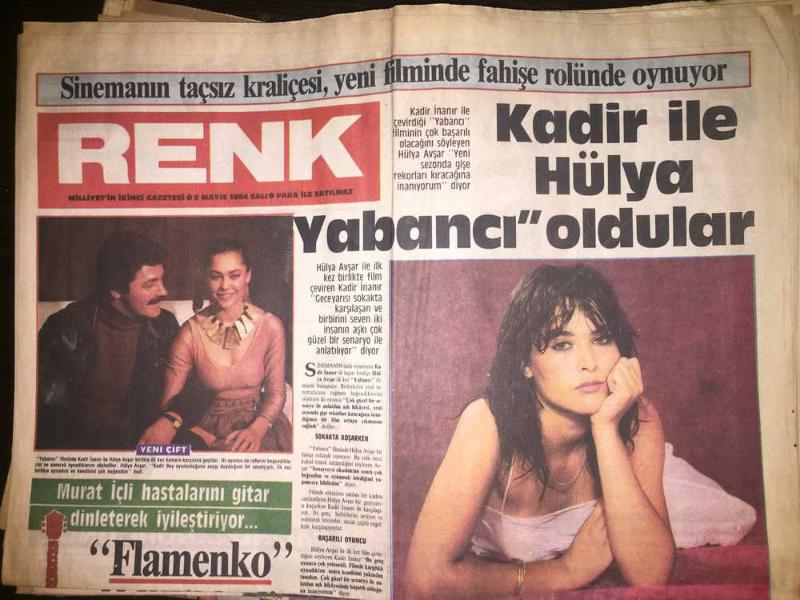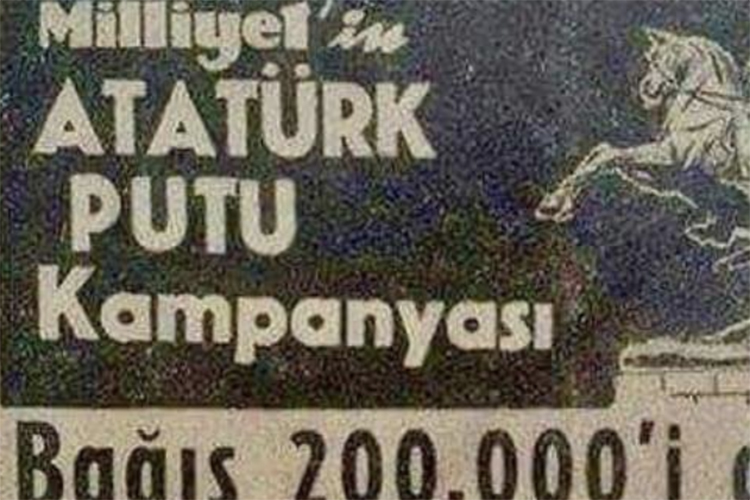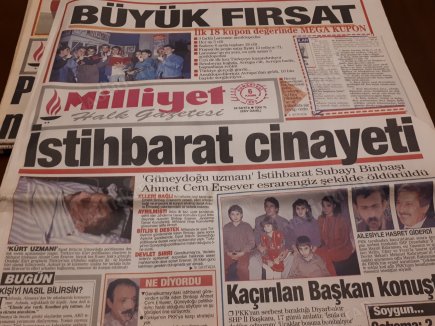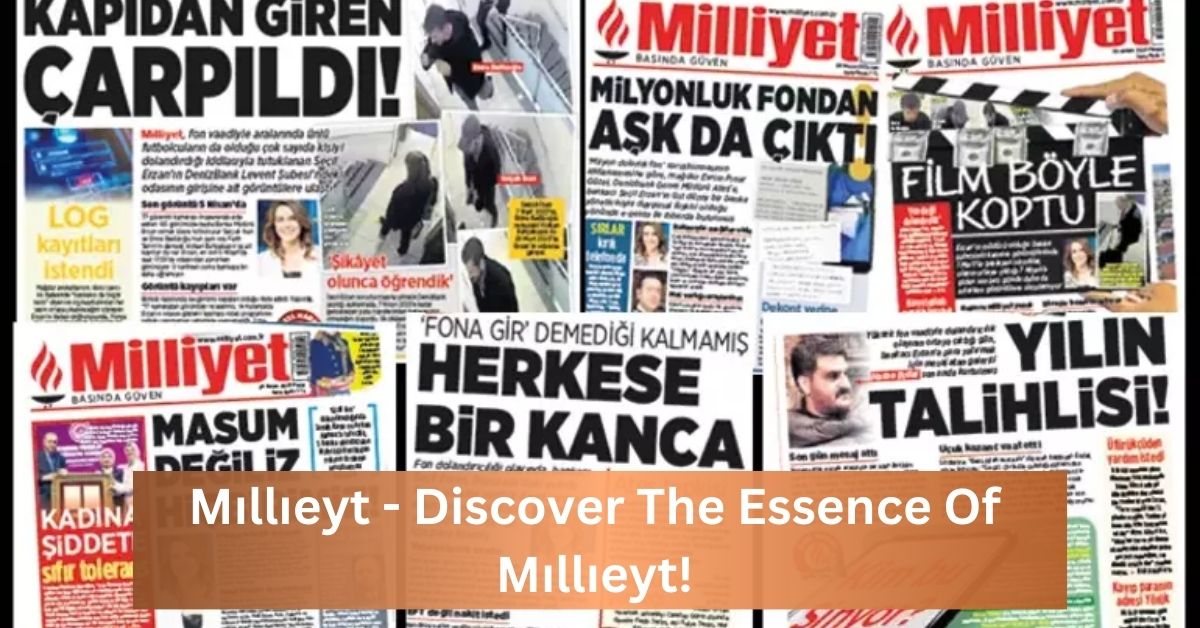Nationalism, the fervent belief in the nation as a fundamental unit of human life, has shaped the course of history and politics for centuries. In various forms, it manifests as a sense of pride, loyalty, and devotion to one’s nation.
Among the diverse expressions of nationalism worldwide, “Milliyet” holds a distinct place, particularly in regions where it has deep historical and cultural roots.
This article aims to delve into the concept of Milliyet, examining its meaning, significance, and implications within the context of nationalism.
Defining Milliyet:
Milliyet, derived from the Turkish word “milli,” meaning national or ethnic, encompasses the collective identity, consciousness, and solidarity of a specific nation or ethnic group.
Unlike generic nationalism, Milliyet often emphasizes cultural, linguistic, and historical ties as foundational elements of national identity.
It transcends mere citizenship, encompassing a shared heritage, values, and aspirations that bind individuals together as a cohesive community.
Historical Context:
The concept of Milliyet has historical roots, notably in the Ottoman Empire and later in the formation of the Republic of Turkey.
During the decline of the Ottoman Empire, the idea of Turkish nationalism emerged as a unifying force amidst the diverse ethnic and religious groups within its territories.

Mustafa Kemal Atatürk, the founder of modern Turkey, promoted a secular form of nationalism that aimed to forge a cohesive Turkish identity based on common cultural and historical heritage, thus giving rise to Milliyet as a defining principle of the new republic.
Cultural and Ethnic Identity:
Central to Milliyet is the notion of cultural and ethnic identity, which serves as the cornerstone of national solidarity. Language, religion, traditions, and customs play pivotal roles in shaping this identity, fostering a sense of belonging and shared destiny among members of the nation.
In many cases, Milliyet intertwines with concepts of ethnicity, where a particular ethnic group’s distinctiveness forms the basis of national identity, as seen in the Kurdish Milliyet or the Circassian Milliyet within Turkey.
Political Implications:
Milliyet carries significant political implications, influencing policies, governance, and interstate relations. Governments often leverage Milliyet to promote national unity, legitimacy, and sovereignty, employing symbols, rituals, and narratives to reinforce collective identity and loyalty to the state.
However, excessive emphasis on Milliyet can exacerbate ethnonationalism, leading to exclusionary practices, discrimination against minority groups, and conflicts over competing national narratives.
Challenges and Controversies:
Despite its unifying potential, Milliyet also faces challenges and controversies, particularly in multicultural societies. The tension between fostering a cohesive national identity and respecting cultural diversity poses dilemmas for policymakers.
In contexts where multiple Milliyets coexist, such as in Turkey with its Kurdish, Armenian, and other minority populations, balancing inclusivity with the dominant national narrative remains a persistent challenge, often fueling social tensions and political unrest.
Global Perspectives:
While Milliyet finds its primary expression in Turkey and other Turkic-speaking regions, similar concepts of national identity exist worldwide, albeit under different names and contexts.
Whether it’s “nationalism” in Europe, “patriotism” in the United States, or “Umami” in Japan, the underlying principles of collective identity, pride, and solidarity resonate across diverse cultures and societies.
Understanding the nuances of Milliyet offers insights into broader debates on nationalism, ethnicity, and identity in an increasingly interconnected world.
Cultural Revivalism: Milliyet and the Rediscovery of Heritage
Cultural revivalism refers to efforts aimed at reviving, preserving, and promoting traditional cultural practices, customs, and values within a society. Within the context of Milliyet, cultural revivalism plays a crucial role in reaffirming national identity and fostering a sense of pride and belonging among the populace.

This heading explores how Milliyet inspires movements to rediscover and reassert cultural heritage, ranging from language revitalization to the revival of traditional arts, music, and cuisine. It delves into the significance of cultural revivalism in reinforcing national cohesion and resisting cultural homogenization in an increasingly globalized world.
Education and Indoctrination: Milliyet in the Curriculum
Education serves as a powerful tool for shaping national identity and fostering allegiance to the state. In many nations, including those with a strong emphasis on Milliyet, the education system plays a pivotal role in indoctrinating citizens with the values, history, and ideals associated with national identity.
This heading examines how Milliyet permeates educational curricula, influencing the content taught in schools, the portrayal of historical events, and the cultivation of patriotic sentiment among students.
It also explores the tensions between promoting Milliyet and fostering critical thinking and multicultural awareness within educational institutions.
Media and Propaganda: Constructing the Milliyet Narrative
Media and propaganda are instrumental in shaping public perception and reinforcing national narratives. Within the framework of Milliyet, media outlets often serve as conduits for disseminating messages of unity, pride, and loyalty to the nation.
This heading delves into the role of media and propaganda in constructing and perpetuating the Milliyet narrative, examining how state-controlled or nationalist-oriented media outlets influence public opinion, shape collective memory, and marginalize dissenting voices.
It also explores the challenges posed by media manipulation and propaganda in fostering informed citizenship and democratic discourse.
Transnationalism and Diaspora: Milliyet Beyond Borders
In an era of increasing globalization and transnational migration, Milliyet transcends territorial boundaries, extending its influence to diaspora communities around the world.
This heading explores the phenomenon of transnational Milliyet, examining how diaspora populations maintain connections with their homeland, preserve cultural heritage, and contribute to the promotion of national identity from afar.
It delves into the complexities of navigating multiple identities, allegiances, and loyalties within diaspora communities, as well as the role of transnational organizations, media, and cultural exchanges in fostering a sense of belonging to the homeland while embracing the host country’s cultural diversity.
Contemporary Challenges: Adapting Milliyet to Modern Realities
As societies evolve and face new challenges, the concept of Milliyet must also adapt to contemporary realities. This heading examines the ongoing relevance of Milliyet in the face of globalization, multiculturalism, and rapid social change.
It explores how modern phenomena such as digital technology, urbanization, and migration reshape national identities and challenge traditional notions of Milliyet.

Additionally, it addresses pressing issues such as environmental sustainability, socioeconomic inequality, and political polarization, considering how Milliyet can serve as a catalyst for collective action and social cohesion in addressing these challenges.
Finally, it explores innovative approaches to redefining Milliyet for the 21st century, emphasizing inclusivity, diversity, and civic engagement as essential components of a dynamic and resilient national identity.
Conclusion:
In essence, Milliyet represents a multifaceted concept that encapsulates the essence of national identity, cultural heritage, and collective consciousness. Rooted in history yet evolving with contemporary realities, it continues to shape political discourse, social dynamics, and individual perceptions of belonging.
As societies navigate the complexities of globalization, multiculturalism, and identity politics, a nuanced understanding of Milliyet is essential for fostering inclusive national identities that celebrate diversity while preserving unity and cohesion.
Read more:



